- About me
- Publications
- Ren. in El. Markets
- Module 1 – Fundamentals of electricity markets
- Module 2 – Electricity spot markets (e.g., day-ahead)
- Module 3 – Intra-day and balancing markets
- Module 4 – Ancillary services
- Module 5 – Impact of renewables on electricity markets
- Module 6 – Participation of renewables in electricity markets
- Module 7 – Introduction to renewable energy analytics
- Module 8 – Verification of renewable energy forecasts
- Module 9 – Renewable energy forecasting – First steps
- Module 10 – Renewable energy forecasting – Advanced topics
- Additional industry interviews
- Interviews with former students
- Exercises
- Int. J. Forecasting
- Contact
- Download CV
2023
Publication Types:
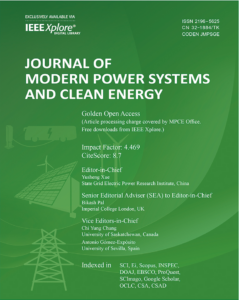
What may future electricity markets look like?
2023ArticleJournal paper
Journal of Modern Power System and Clean Energy 11(3), pp. 698-706 (invited)
Publication year: 2023
Should the organization, design and functioning of electricity markets be taken for granted? Definitely not. While decades of evolution of electricity markets in developed countries made us believe that we may have found the right and future-proof model, the substantially and rapidly evolving context of our power and energy systems is challenging this idea in many ways. Actually, that situation brings both challenges and opportunities. Challenges include accommodation of renewable energy generation, decentralization and support to investment, while opportunities are mainly that advances in technical and social sciences provide us with many more options in terms of future market design. We here take a holistic point of view, by trying to understand where we are coming from with electricity markets and where we may be going. Future electricity markets should be made fit for purpose by considering them as a way to organize and operate a socio-techno-economic system.

Privacy-preserving convex optimization: When differential privacy meets stochastic programming
Convex optimization finds many real-life applications, where – optimized on real data – optimization results may expose private data attributes (e.g., individual health records, commercial information, etc.), thus leading to privacy breaches. To avoid these breaches and formally guarantee privacy to optimization data owners, we develop a new privacy-preserving perturbation strategy for convex optimization programs by combining stochastic (chance-constrained) programming and differential privacy. Unlike standard noise-additive strategies, which perturb either optimization data or optimization results, we express the optimization variables as functions of the random perturbation using linear decision rules; we then optimize these rules to accommodate the perturbation within the problem’s feasible region by enforcing chance constraints. This way, the perturbation is feasible and makes different, yet adjacent in the sense of a given distance function, optimization datasets statistically similar in randomized optimization results, thereby enabling probabilistic differential privacy guarantees. The chance-constrained optimization additionally internalizes the conditional value-at-risk measure to model the tolerance towards the worst-case realizations of the optimality loss with respect to the non-private solution. We demonstrate the privacy properties of our perturbation strategy analytically and through optimization and machine learning applications.
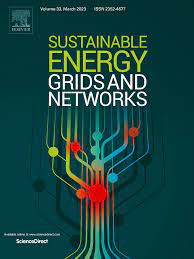
P2P market coordination methodologies with distribution grid management
2023ArticleJournal paper
Sustainable Energy, Grids and Networks 34, art. no. 101075
Publication year: 2023
As prosumers and energy communities gain prominence in power systems, energy trading between prosumers in local P2P markets is paramount. Within this novel market design, peers can directly exchange energy with each other, leading to economic advantages while supporting the decarbonization of the sector. To ensure that voltage and congestion issues are properly addressed, a thorough coordination between the P2P market and the Distribution System Operator is required. This paper presents and compares three mutual-benefit coordination methods. The first method entails applying product differentiation on an iterative basis to avoid exceeding the lines thermal limits, which is performed through penalties on P2P exchanges that may be overloading the network. The second method uses the P2P market with an AC-OPF, ensuring network operation through a flexibility market via upward and downward flexibility. The last one proposes an integrated operation of the P2P market with AC-OPF. All methods are assessed in a typical distribution network with high prosumers integration. The results show that the second method is the one that, fulfilling the network constraints, presents greater social welfare.
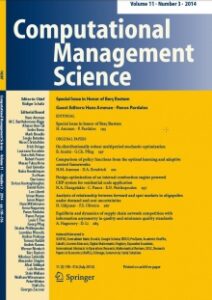
Online decision-making for trading wind energy
We propose and develop a new algorithm for trading wind energy in electricity markets, within an online learning and optimization framework. In particular, we combine a component-wise adaptive variant of the gradient descent algorithm with recent advances in the feature-driven newsvendor model. This results in an online offering approach capable of leveraging data-rich environments, while adapting to the nonstationary characteristics of energy generation and electricity markets, also with a minimal computational burden. The performance of our approach is analyzed based on several numerical experiments, showing both better adaptability to nonstationary uncertain parameters and significant economic gains.

On the design of decentralised data markets
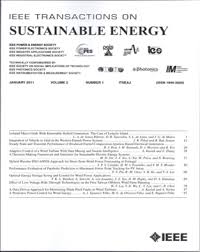
On machine learning-based techniques for future sustainable and resilient energy systems
2023ArticleJournal paper
IEEE Transactions on Sustainable Energy 14(2), pp. 1230-1243
Publication year: 2023
Permanently increasing penetration of converter-interfaced generation and renewable energy sources (RESs) makes modern electrical power systems more vulnerable to low probability and high impact events, such as extreme weather, which could lead to severe contingencies, even blackouts. These contingencies can be further propagated to neighbouring energy systems over coupling components/technologies and consequently negatively influence the entire multi-energy system (MES) (such as gas, heating and electricity) operation and its resilience. In recent years, machine learning-based techniques (MLBTs) have been intensively applied to solve various power system problems, including system planning, or security and reliability assessment. This paper aims to review MES resilience quantification methods and the application of MLBTs to assess the resilience level of future sustainable energy systems. The open research questions are identified and discussed, whereas the future research directions are identified.
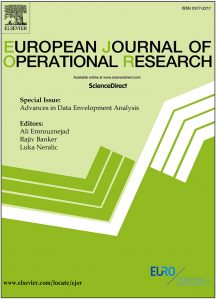
Moving from linear to conic markets for electricity
2023ArticleJournal paper
European Journal of Operational Research 309(2), pp. 762-783
Publication year: 2023
We propose a new forward electricity market framework that admits heterogeneous market participants with second-order cone strategy sets, who accurately express the nonlinearities in their costs and constraints through conic bids, and a network operator facing conic operational constraints. In contrast to the prevalent linear-programming-based electricity markets, we highlight how the inclusion of second-order cone constraints improves uncertainty-, asset-, and network-awareness of the market, which is key to the successful transition towards an electricity system based on weather-dependent renewable energy sources. We analyze our general market-clearing proposal using conic duality theory to derive efficient spatially-differentiated prices for the multiple commodities, comprised of energy and flexibility services. Under the assumption of perfect competition, we prove the equivalence of the centrally-solved market-clearing optimization problem to a competitive spatial price equilibrium involving a set of rational and self-interested participants and a price setter. Finally, under common assumptions, we prove that moving towards conic markets does not incur the loss of desirable economic properties of markets, namely market efficiency, cost recovery, and revenue adequacy. Our numerical studies focus on the specific use case of uncertainty-aware market design and demonstrate that the proposed conic market brings advantages over existing alternatives within the linear programming market framework.
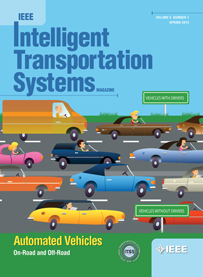
Fair and scalable electric vehicle charging under electrical grid constraints
2023ArticleJournal paper
IEEE Transactions on Intelligent Transportation Systems 24(12), pp. 15169-15177
Publication year: 2023
The increasing penetration of electric vehicles brings a consequent increase in charging facilities in the low-voltage electricity network. Serving all charging requests on-demand can endanger the safety of the electrical power distribution network. This creates the issue of fairly allocating the charging energy among electric vehicles while maintaining the system within safe operational margins. However, calculating efficient charging schedules for the charging stations bears a high computational burden due to the non-convexities of charging stations’ models. In this paper, we consider a tri-level system with electric vehicles, charging stations, and a power distribution system operator. The objective of each station is formulated as a max-min fairness, mixed-integer linear optimisation problem, while the network constraints are modelled using a second-order conic formulation. In order to tackle the computational complexity of the problem, we decompose it and use a novel approximation method tailored to this problem. We compare the performance of the proposed method with that of the popular alternating direction method of multipliers. Our simulation results indicate that the proposed method achieves a near-optimal solution along with promising scalability properties.

Distributionally robust trading strategies for renewable energy producers
2023ArticleJournal paper
IEEE Transactions on Energy Markets, Policy and Regulation 1(1), pp. 37-47
Publication year: 2023
Renewable energy generation is offered through electricity markets, quite some time in advance. This then leads to a problem of decision-making under uncertainty, which may be seen as a newsvendor problem. Contrarily to the conventional case for which underage and overage penalties are known, such penalties in the case of electricity markets are unknown, and difficult to estimate. In addition, one is actually only penalized for either overage or underage, not both. Consequently, we look at a slightly different form of a newsvendor problem, for a price-taker participant offering in electricity markets, which we refer to as Bernoulli newsvendor problem. After showing that its solution is consistent with that for the classical newsvendor problem, we then introduce distributionally robust versions, with ambiguity possibly about both the probabilistic forecasts for power generation and the chance of success of the Bernoulli variable. Both versions of the distributionally robust Bernoulli newsvendor problem admit closed-form solutions. We finally use simulation studies, as well as a real-world case-study application, to illustrate the workings and benefits from the approach.

Chance-constrained economic dispatch of generic energy storage under decision-dependent uncertainty
2023ArticleJournal paper
IEEE Transactions on Sustainable Energy 14(4), pp. 2234-2248
Publication year: 2023
Compared with large-scale physical batteries, aggregated and coordinated generic energy storage (GES) resources provide low-cost, but uncertain, flexibility for power grid operations.While GES can be characterized by different types of uncertainty, the literature mostly focuses on decision-independent uncertainties (DIUs), such as exogenous stochastic disturbances caused by weather conditions. Instead, this manuscript focuses on newly-introduced decision-dependent uncertainties (DDUs) and considers an optimal GES dispatch that accounts for uncertain available state-of-charge (SoC) bounds that are affected by incentive signals and discomfort levels. To incorporate DDUs, we present a novel chance-constrained optimization (CCO) approach for the day-ahead economic dispatch of GES units. Two tractable methods are presented to solve the proposed CCO problem with DDUs: (i) a robust reformulation for general but incomplete distributions of DDUs, and (ii) an iterative algorithm for specific and known distributions of DDUs. Furthermore, reliability indices are introduced to verify the applicability of the proposed approach with respect to the reliability of the response of GES units. Simulation-based analysis shows that the proposed methods yield conservative, but credible,GES dispatch strategies and reduced penalty cost by incorporating DDUs in the constraints and leveraging data-driven parameter identification. This results in improved availability and performance of coordinated GES units.
